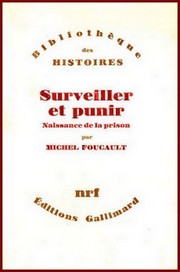In legal discourse, an author is the creator of an original work, whether that work is in written, graphic, or recorded medium. Thus, a sculptor, painter, or composer, is an author of their respective sculptures, paintings, or compositions, even though in common parlance, an author is often thought of as the writer of a book, article, play, or other written work. In the case of a work for hire, "the employer or commissioning party is considered the author of the work", even if they did not write or otherwise create the work, but merely instructed another individual to do so.
Postmodernism is an intellectual stance or mode of discourse characterized by skepticism toward the "grand narratives" of modernism; rejection of epistemic (scientific) certainty or the stability of meaning; and sensitivity to the role of ideology in maintaining political power. Claims to objectivity are dismissed as naïve realism, with attention drawn to the conditional nature of knowledge claims within particular historical, political, and cultural discourses. The postmodern outlook is characterized by self-referentiality, epistemological relativism, moral relativism, pluralism, irony, irreverence, and eclecticism; it rejects the "universal validity" of binary oppositions, stable identity, hierarchy, and categorization.
Post-structuralism is a philosophical movement that questions the objectivity or stability of the various interpretive structures that are posited by structuralism and considers them to be constituted by broader systems of power. Although post-structuralists all present different critiques of structuralism, common themes among them include the rejection of the self-sufficiency of structuralism, as well as an interrogation of the binary oppositions that constitute its structures. Accordingly, post-structuralism discards the idea of interpreting media within pre-established, socially constructed structures.

Structuralism is an intellectual current and methodological approach, primarily in the social sciences, that interprets elements of human culture by way of their relationship to a broader system. It works to uncover the structural patterns that underlie all the things that humans do, think, perceive, and feel.

Discourse is a generalization of the notion of a conversation to any form of communication. Discourse is a major topic in social theory, with work spanning fields such as sociology, anthropology, continental philosophy, and discourse analysis. Following pioneering work by Michel Foucault, these fields view discourse as a system of thought, knowledge, or communication that constructs our experience of the world. Since control of discourse amounts to control of how the world is perceived, social theory often studies discourse as a window into power. Within theoretical linguistics, discourse is understood more narrowly as linguistic information exchange and was one of the major motivations for the framework of dynamic semantics, in which expressions' denotations are equated with their ability to update a discourse context.

Paul-Michel Foucault was a French philosopher, historian of ideas, writer, political activist, and literary critic. Foucault's theories primarily address the relationships between power and knowledge, and how they are used as a form of social control through societal institutions. Though often cited as a structuralist and postmodernist, Foucault rejected these labels. His thought has influenced academics, especially those working in communication studies, anthropology, psychology, sociology, criminology, cultural studies, literary theory, feminism, Marxism and critical theory.

Literary theory is the systematic study of the nature of literature and of the methods for literary analysis. Since the 19th century, literary scholarship includes literary theory and considerations of intellectual history, moral philosophy, social philosophy, and interdisciplinary themes relevant to how people interpret meaning. In the humanities in modern academia, the latter style of literary scholarship is an offshoot of post-structuralism. Consequently, the word theory became an umbrella term for scholarly approaches to reading texts, some of which are informed by strands of semiotics, cultural studies, philosophy of language, and continental philosophy.

Foucault's Pendulum is a novel by Italian writer and philosopher Umberto Eco. It was first published in 1988, and an English translation by William Weaver appeared a year later.

The History of Sexuality is a four-volume study of sexuality in the Western world by the French historian and philosopher Michel Foucault, in which the author examines the emergence of "sexuality" as a discursive object and separate sphere of life and argues that the notion that every individual has a sexuality is a relatively recent development in Western societies. The first volume, The Will to Knowledge, was first published in 1976; an English translation appeared in 1978. The Use of Pleasure, and The Care of the Self, were published in 1984. The fourth volume, Confessions of the Flesh, was published posthumously in 2018.
In philosophy, episteme is knowledge or understanding. The term epistemology is derived from episteme.

Discipline and Punish: The Birth of the Prison is a 1975 book by French philosopher Michel Foucault. It is an analysis of the social and theoretical mechanisms behind the changes that occurred in Western penal systems during the modern age based on historical documents from France. Foucault argues that prison did not become the principal form of punishment just because of the humanitarian concerns of reformists. He traces the cultural shifts that led to the predominance of prison via the body and power. Prison is used by the "disciplines" – new technological powers that can also be found, according to Foucault, in places such as schools, hospitals, and military barracks.
"The Death of the Author" is a 1967 essay by the French literary critic and theorist Roland Barthes (1915–1980). Barthes's essay argues against traditional literary criticism's practice of relying on the intentions and biography of an author to definitively explain the "ultimate meaning" of a text. Instead, the essay emphasizes the primacy of each individual reader's interpretation of the work over any "definitive" meaning intended by the author, a process in which subtle or unnoticed characteristics may be drawn out for new insight. The essay's first English-language publication was in the American journal Aspen, no. 5–6 in 1967; the French debut was in the magazine Manteia, no. 5 (1968). The essay later appeared in an anthology of Barthes's essays, Image-Music-Text (1977), a book that also included his "From Work to Text".

Paul M. Rabinow was professor of anthropology at the University of California (Berkeley), director of the Anthropology of the Contemporary Research Collaboratory (ARC), and former director of human practices for the Synthetic Biology Engineering Research Center (SynBERC). He is perhaps most famous for his widely influential commentary and expertise on the French philosopher Michel Foucault.

The Order of Things: An Archaeology of the Human Sciences by French philosopher Michel Foucault proposes that every historical period has underlying epistemic assumptions, ways of thinking, which determine what is truth and what is acceptable discourse about a subject, by delineating the origins of biology, economics, and linguistics. The introduction to the origins of the human sciences begins with detailed, forensic analyses and discussion of the complex networks of sightlines, hidden-ness, and representation that exist in the group painting Las Meninas by Diego Velázquez. Foucault's application of the analyses shows the structural parallels in the similar developments in perception that occurred in researchers' ways of seeing the subject in the human sciences.

Limited Inc is a 1988 book by the French philosopher Jacques Derrida, containing two essays and an interview.

Heterotopia is a concept elaborated by philosopher Michel Foucault to describe certain cultural, institutional and discursive spaces that are somehow 'other': disturbing, intense, incompatible, contradictory or transforming. Heterotopias are worlds within worlds, mirroring and yet upsetting what is outside. Foucault provides examples: ships, cemeteries, bars, brothels, prisons, gardens of antiquity, fairs, Muslim baths and many more. Foucault outlines the notion of heterotopia on three occasions between 1966 and 1967. A lecture given by Foucault to a group of architects in 1967 is the most well-known explanation of the term. His first mention of the concept is in his preface to The Order of Things, and refers to texts rather than socio-cultural spaces.
Dispositif or dispositive is a term used by the French intellectual Michel Foucault, generally to refer to the various institutional, physical, and administrative mechanisms and knowledge structures which enhance and maintain the exercise of power within the social body. The links between these elements are said to be heterogeneous since knowledge, practices, techniques, and institutions are established and reestablished in every age. It is through these links that power relations are structured.
In philosophy, genealogy is a historical technique in which one questions the commonly understood emergence of various philosophical and social beliefs by attempting to account for the scope, breadth or totality of discourse, thus extending the possibility of analysis. Moreover, a genealogy often attempts to look beyond the discourse in question toward the conditions of their possibility. It has been developed as a continuation of the works of Friedrich Nietzsche. Genealogy is opposed to the Marxist use of the ideology to explain the totality of historical discourse within the time period in question by focusing on a singular or dominant discourse (ideology).
"What Is an Author?" is one of the most important lectures given at the Société Française de Philosophie on 22 February 1969 by French philosopher, sociologist and historian Michel Foucault.
The Author is a certain functional principle by which, in our culture, one limits, excludes and chooses: ... The author is therefore the ideological figure by which one marks the manner in which we fear the proliferation of meaning.
New historicism, a form of literary theory which aims to understand intellectual history through literature and literature through its cultural context, follows the 1950s field of history of ideas and refers to itself as a form of cultural poetics. It first developed in the 1980s, primarily through the work of the critic Stephen Greenblatt, and gained widespread influence in the 1990s. Greenblatt coined the term new historicism when he "collected a bunch of essays and then, out of a kind of desperation to get the introduction done, he wrote that the essays represented something called a 'new historicism'".









